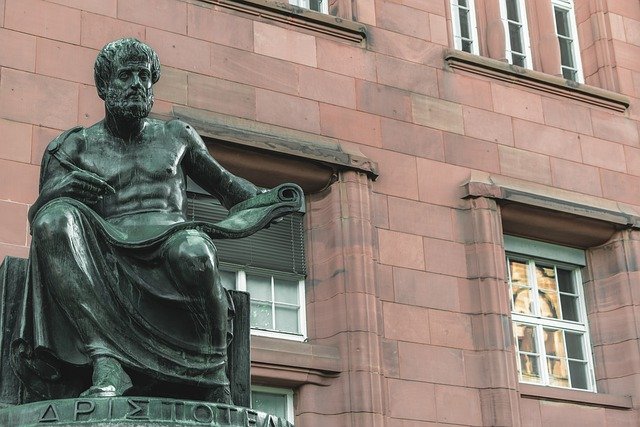Ancient Wisdom
Posted: Thu, 26 Nov 2020 13:15
In this week's Catholic Teacher Article, Mike uses the teachings of Aristotle to explore the duty of a teacher.
Many years ago, when head of RE in Chorley, I came across the following quote by the Hellenistic thinker Aristotle:
Teachers, who educate children, deserve more honour than parents, who merely gave them birth; for the latter provided mere life, while the former ensure a good life.
It made me sit up and think! I was a young dad with two lovely young boys. I took my role as a father seriously—did I agree with this ancient voice? Reflecting fifteen years later, I am still unsure if I totally agree, yet I am sure that the wise Aristotle hit on a profound truth. Education offers youngsters the chance to live a "good life".
To live a life of goodness and to live life to the full, young people require an education that is wholesome and holistic. To be either of these, the underlying ethos that drives the educator must be countercultural. "How?" you may ask. We are well aware of the materialistic nature of twenty-first-century society. What do the many consider to be "good"? Is it money, clothing, gadgets and "stuff"? These may not be "good", or, in the words of Aquinas, they may simply be "apparent good". In the Gospels, the vision of "good" is being faithful to the call to see the first as last and the last as first—countercultural then and now! The role of the teacher is therefore to educate for the "good", and the teacher must live by these values. This simple maxim must be the driver for teaching children how to live the "good life".
The jewel in the crown of Catholic education is that it has always sought to bring the skills of its staff to those on the margins of society. Yes, it is true that some Catholic schools also grew up in communities that are not needy in the necessities of life. Yet in doing so, powerful evangelisation has been undertaken, demonstrating to those with means how they can serve the poorest in society. Countercultural work indeed.
Children are sacred, adults are sacred, the entire Earth as the body of Christ is sacred, and the task of the teacher is to help youngsters to see themselves as sacred, and to see their fellow humans as reflections of the living God. This is what I am sure it means to ensure that children and young adults live the "good life".
What Aristotle called the "good life", we in our Christian community may call the "Good News". Teachers, like all the baptised, are heralds of the Good News, and it is their sacred duty to constantly form the youngsters in their care in the values of the Gospels and to help those who are blinded by a material view of reality to see the truth; to enable those who are deaf to the sufferings of their fellow humans to hear the truth, and to cure those who are blind to the poverty around them and mobilise them to action. At the heart of Aristotle's words is a call to heal those who are symbolically blind, deaf and lame—a call to teachers be agents of mobilisation and herald the Good News, which will always lead to a "good life" for those who are open to it.
Image by Couleur from Pixabay
